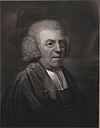Wikipedia:2012 main page redesign proposal/Chris G
|
Welcome to WikipediA |
The free encyclopedia that anyone can edit. |
In the news

- A cholera outbreak in Sierra Leone is declared a national emergency following the deaths of more than 300 people.
- At least 36 people are suspected dead after Hurricane Isaac (satellite image pictured) strikes the Gulf Coast of the United States, Lesser Antilles, Greater Antilles and the Bahamas.
- The opening ceremony of the Summer Paralympic Games is held in London.
- An Israeli court rules that the Israel Defense Forces and the Ministry of Defense were not responsible for the death of Rachel Corrie in the Gaza Strip in 2003.
- More than 2,000 people riot in Mombasa, Kenya, in reaction to the shooting death of Muslim cleric Aboud Rogo.
- Colombian President Juan Manuel Santos announces the commencement of peace talks with the rebel group Revolutionary Armed Forces of Colombia.
Today's featured article
"Amazing Grace" is a Christian hymn written by English poet and clergyman John Newton (pictured) and published in 1779. Based on Newton's personal experiences at sea (in the Royal Navy and the slave trade), it was originally written in 1773 and published in Newton and Cowper's Olney Hymns in 1779. Although it became relatively obscure in England, in the United States it was commonly used during the Second Great Awakening. The original tune, if any, is unknown, but it is now most commonly sung to the tune "New Britain". It conveys a message that forgiveness and redemption are possible regardless of the sins people commit, and that the soul can be delivered from despair through the mercy of God. One of the most recognizable songs in the English-speaking world, it has been called "the most famous of all the folk hymns", having been recorded thousands of times during the 20th century and becoming emblematic in African American spiritual music. (more...)
Recently featured: Simon Bolivar Buckner – History of Michigan State University – John Martin Scripps
On this day...
September 1: Start of the Liturgical year in the Eastern Orthodox Church; Constitution Day in Slovakia; Independence Day in Uzbekistan (1991)
| 1715 | Louis XIV of France (pictured), the "Sun King", died after a reign of 72 years, longer than any other French or other major European monarch at the time. |
| 1804 | German astronomer Karl Ludwig Harding discovered one of the largest main belt asteroids, naming it Juno after the Roman goddess. |
| 1862 | American Civil War: Confederate forces attacked retreating Union Army troops at the Battle of Chantilly during a rainstorm in Chantilly, Virginia, but the fighting ended up being tactically inconclusive. |
| 1914 | The Passenger Pigeon, which once had a population of at least 3 billion birds, became extinct, when the last individual died in captivity. |
| 1969 | A bloodless coup d'état led by Muammar Gaddafi overthrew Idris I of Libya. |
| 1972 | American chess grandmaster Bobby Fischer became the 11th World Chess Champion when he defeated Russian Boris Spassky in a match that was widely publicized as a Cold War confrontation. |
Did you know...
- ... that a viral video by an Indian influencer (pictured) resulted in the sugar content of Bournvita being cut by almost 15 percent?
- ... that on 26 December 1724 J. S. Bach directed the first performance of Christum wir sollen loben schon, BWV 121, based on a hymn written by Martin Luther in 1524?
- ... that actress Jane Barnes learned how to pilot a plane so that she could fly home to Massachusetts on her own?
- ... that the largest IMAX cinema in the Southern Hemisphere is in Melbourne?
- ... that Musa al-Gharbi argues that "symbolic capitalists" support social justice movements to amass social currency?
- ... that American president Zachary Taylor is mentioned in a poem about the conversion of Saint Paul?
- ... that Filipino violinist Gilopez Kabayao was nicknamed the "Mozart to the Barrios"?
- ... that Ian Holm, who died in 2020, was "resurrected" to appear in Alien: Romulus through a combination of animatronics, computer-generated imagery, and artificial intelligence?
- ... that NFL player Adrian Baril also was a "fat men's race" champion?
Today's featured picture

|
Amphipoea oculea, the ear moth, is a moth in the family Noctuidae, with a wingspan of 29 to 34 millimetres (1.1 to 1.3 inches). Its range includes southern England, where it is widespread and common, as well as Ireland and continental Europe, with the exception of Albania, Greece and Turkey. Adults are found from June to September depending on the location, with one generation occurring per year. At night the moths come to light and flowers, seeking honeydew and sugar. During the day they feed at the flowers of thistles and ragwort. This female A. oculea moth was photographed feeding on field scabious in Keila, Estonia. The photograph was focus-stacked from 22 separate images. Photograph credit: Ivar Leidus
Recently featured:
|
| Wikipedia Encyclopedia |
Wikinews Open journalism |
Wiktionary Dictionary & thesaurus |
Wikibooks Textbooks & manuals |
Wikisource Source texts | |||||
| Wikiquote Quotations |
Wikispecies Species directory |
Wikiversity Learning tools |
Commons Free media |
Meta-Wiki Coordination |
This Wikipedia is written in English. Many other Wikipedias are available; some of the largest are listed below.
-
1,000,000+ articles
-
250,000+ articles
-
50,000+ articles





